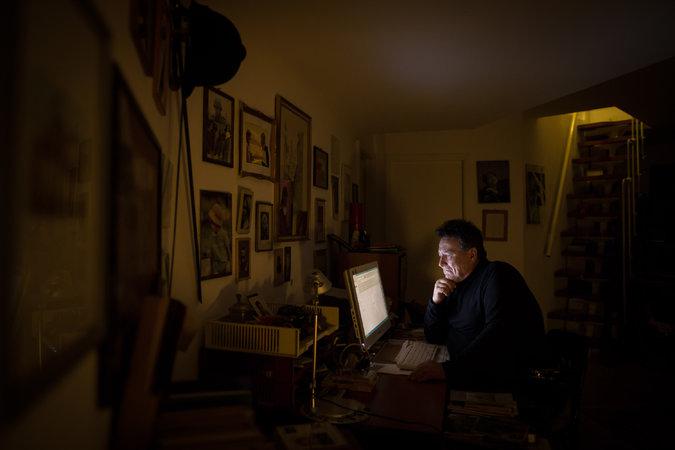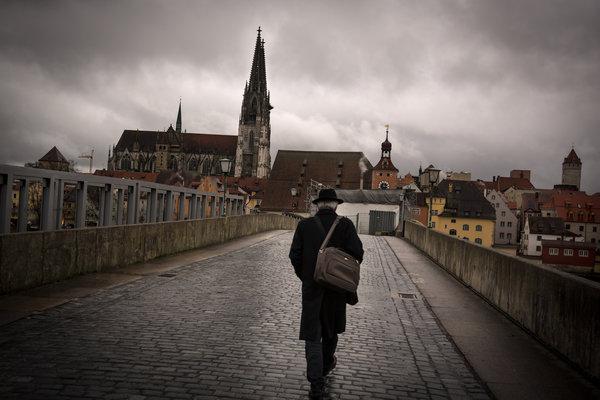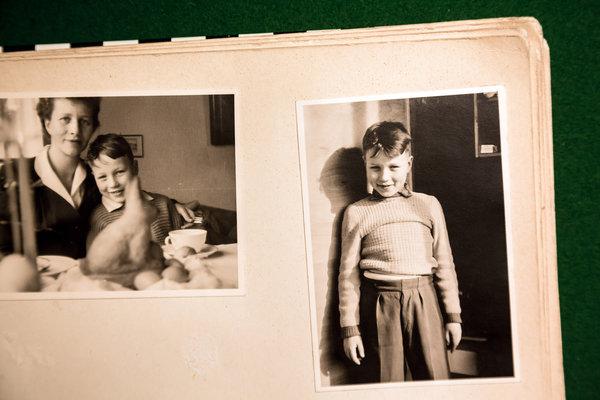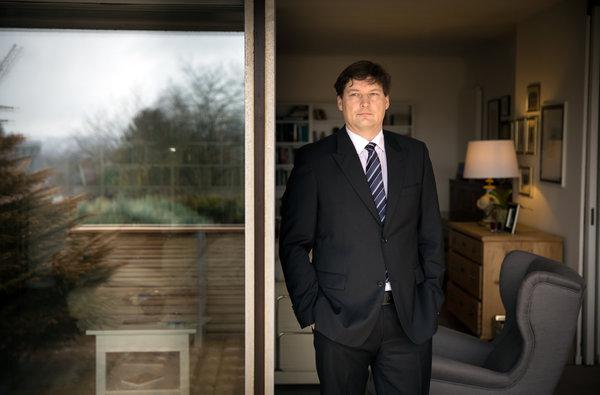|
Church Confronts Abuse Scandal at a Famed German Choir
By Melissa Eddy
REGENSBURG, Germany — Udo Kaiser was 8 years old, brimming with energy and a bell-clear soprano voice when he arrived at the boarding school of the famed boys choir that bears this city’s name. Before his first day ended, he had been struck by a teacher. The months that followed brought twisted ears or slaps for disrupting the silence demanded in the classrooms, corridors and dining hall. Singing the wrong note earned a beating with a conductor’s baton. Fingers that missed notes at the piano were slammed with the fallboard. But it was the night he was caught playing with marbles in his dormitory, and was called to the prefect’s room for punishment, that would later send him into years of depression and cause him to lose his voice. There, a priest whom the boys called “the pickle” because of his long nose, ordered him to pull down his pajama bottoms and kneel. The priest, whom Mr. Kaiser declined to name but said had since died, then placed the boy’s head between his legs and took up his rod. Even as the blows stung his bare flesh, Mr. Kaiser remembers feeling another sensation, of something against the back of his head. While beating him, the priest took advantage of his position to pleasure himself. “At that moment, you begin living in another world,” Mr. Kaiser said in a recent interview. “You don’t want to believe it.” This month, Mr. Kaiser, now 58, will be one of six victims from the Regensburg Domspatzen — literally “Cathedral Sparrows” — who will finally have a chance to tell their stories to representatives of the Roman Catholic Church and the choir, which was run from 1964 to 1994 by Msgr. Georg Ratzinger, the brother of Pope Benedict XVI. Mr. Kaiser and the other victims’ representatives are part of a 12-member commission formed to address the choir’s history of abuse. It is part of what critics call a long-overdue attempt by the church to come to terms with a scandal that, because of the association with the former pope’s brother, became one of the most troublesome to roil the Vatican in the last decade and more. The commission, which held its first meeting last week, follows the release of a report in January that found at least 231 cases of physical abuse from 1945 to 2014 at the choir, including a dozen cases of alleged sexual abuse. A second meeting is to be held later this month. Since the report was presented, another 60 victims of physical abuse have come forward, said Ulrich Weber, a local lawyer who was assigned by the church and the choir to carry out an independent investigation. Before Mr. Weber’s report, only 72 cases of physical abuse and two incidents of sexual abuse had been acknowledged. In presenting his report, the fruit of eight months of interviews and research in the church archive, Mr. Weber said that he had to “assume” that Monsignor Ratzinger, now 91, was aware of the physical and sexual abuse that happened under his watch. The monsignor has previously apologized for slapping boys during the three decades he ran the choir, while noting that corporal punishment was accepted discipline. He has said he “was not aware that any sexual abuse was taking place at that time.” After Mr. Weber’s report, however, Monsignor Ratzinger called the latest attempt to investigate the allegations “insanity.” In a spontaneous interview after he stepped off a plane in Germany from Rome, he told Bavarian Rundfunk state television, “It is simply insane to try to examine how many slaps were doled out more than 40 years ago in our institution, as they did in others.” The Regensburg Diocese promptly issued a statement on his behalf, calling it “correct to unreservedly clarify all of the allegations,” which have threatened not only the reputation of a cultural institution here that traces its roots back to 975, but also its very existence. The number of boys applying for the schools, and accorded positions in the choir, has dwindled since the allegations first came to prominence in 2010, though programs have been instituted at the schools to prevent abuse. Much of the choir’s troubles, critics say, stem from the church’s failure to fully grapple with the scandal until now, which they see as indicative of the diocese’s deeply conservative stance, reflected in its ties to Benedict and his brother. Although leaders of the church and the choir knew of the abuse allegations and even criticized them, for decades no one was punished and no measures were taken to ensure such abuses never happened again, Mr. Weber said in his interim report. Bishop Rudolf Voderholzer, in a sermon marking three years since he was made the head of the diocese in January, acknowledged that the church had failed to appropriately handle a “difficult inheritance in the form of physical and sexual abuse of schoolchildren” in the choir at the hands of priests. Because most of the cases are from more than 30 years ago, they can no longer be brought before the German justice system. But the report cited three allegations of abuse by three different perpetrators in the late 1990s to the early 2000s, which are being investigated. One victim had written to the church authorities in 2006 detailing what Mr. Weber called “a concrete case of sexual abuse.” The victim received no response until 2010, when Germany was rocked by nationwide revelations of abuse of children in the care of priests. “Unfortunately, repeated efforts to correct this in the past have had too little effect,” the bishop said. “The wounds are deep and keep reopening.” Fritz Wallner, an active layman in Regensburg, said the church needed to make a fresh start if the choir was to survive. Likening the situation to the scandal when Volkswagen was caught cheating on emissions, Mr. Wallner is calling for the bishop to purge anyone linked to his predecessor, Gerhard Ludwig Müller, who oversaw the handling of the allegations. Despite the lack of vigor in addressing the scandal, Pope Benedict placed Bishop Müller in charge of the Vatican’s Congregation for the Doctrine of the Faith in 2012 and made him a cardinal in 2014. “If it were a company, it would be considered a political consequence and a necessary step to prevent any further damage to the choir,” Mr. Wallner said. “We saw this five years ago, now the Domspatzen are in the negative spotlight yet again.” Mr. Weber said he realized early on that whatever his investigation would uncover, the only hope of moving forward would depend on the agreement and involvement of all affected parties. After looking at how other institutions had handled abuse allegations and considering how deeply the victims mistrusted the church and the choir, he realized leaders from both sides had to sit down together and hash out a solution. The meeting this month is intended to be a start. “It became clear to me that this needed to become a top priority and be treated by the leaders as such if we were to ever be able to come to a resolution,” Mr. Weber said. Mr. Kaiser welcomes the chance to tell church leaders what happened to him, after so many years of being ignored; he received a letter in December 2011 informing him that he could not be recognized as a victim of sexual abuse because nobody could corroborate his account. “I was always told that I was not abused, that what they did to me was my fault, because I broke the rules, I was out of line,” Mr. Kaiser said. “They have never recognized how they demonized us and destroyed our lives.”
|
.
Any original material on these pages is copyright © BishopAccountability.org 2004. Reproduce freely with attribution.



